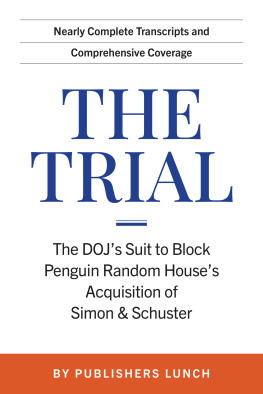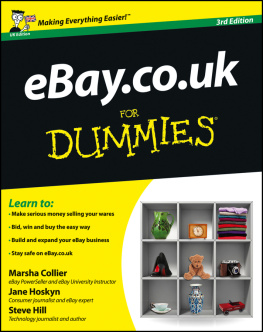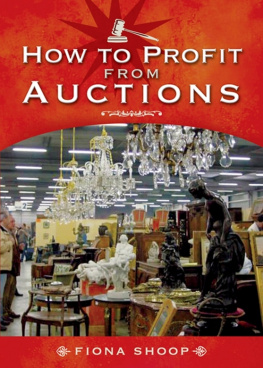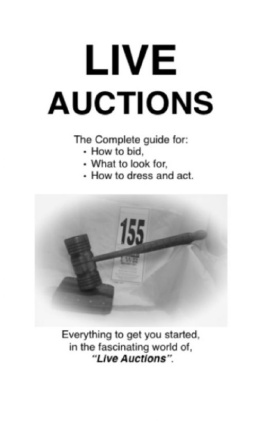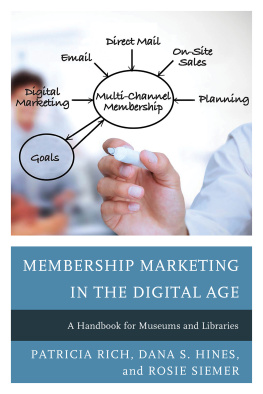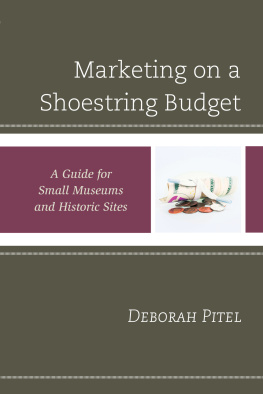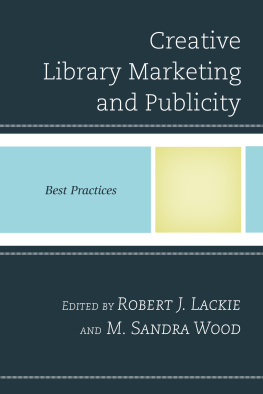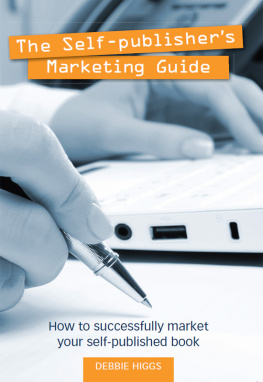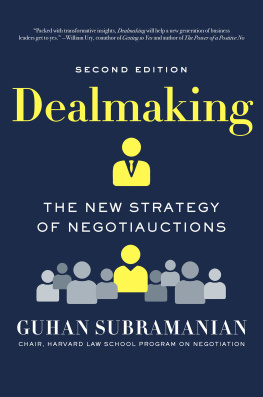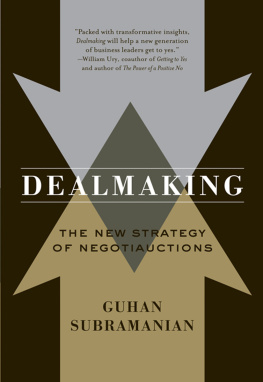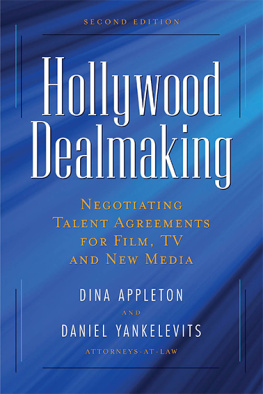
The Trial
The DOJs Suit to Block Penguin Random Houses Acquisition of Simon & Schuster
Nearly Complete Transcripts and Comprehensive Coverage
By Publishers Lunch
Publishers Lunch has been the daily essential read for the book publishing business for twenty years and is the largest-circulation news communication in the world for publishing professionals. Publishers Marketplace is the website associated with Publishers Lunchproviding round-the-clock news and analysis, deal reports, job listings, and many unique databases and tools that help publishing professionals find critical information, connect with each other, and do business better electronically.
Publishers Lunch
2 Park Place, #4 Bronxville, NY 10708
www.publishersmarketplace.com
Michael Cader, Founder and Principal Reporter
Robin Dellabough, Projects Director
Katy Hershberger, Principal Reporter
Kathy Smith, Editor
Erin Somers, Reporter
Cover design by Wendy Palitz
Layout by Julie Ink
ebook by Brady Typesetting (Note: this ebook isan accessible product made to the most recent rigorous standards to ensure those with low-vision, no vision, dyslexia, etc. have the best reading experience.)
The Trial by Publishers Lunch. Copyright 2022 by Cader Company Inc. All rights reserved. No portion of this book may be reproduced in any form without permission from the publisher, except as permitted by U.S. copyright law.
ebook ISBN: 9781948586542
Contents
Prologue
For three short but endless weeks in August 2022 in the E. Barrett Prettyman Federal Courthouse in Washington, DC, something extraordinary occurred in Courtroom 12. Eight publishing CEOs; four publishers; six literary agents; other executives; and two economics experts took the stand to answer questions about how publishing works. The focus was the market for high-advance anticipated best selling books [ATSB, in the accepted terminology]. But the testimony broadly covered how publishing works and sometimes doesnt work; the competitive landscape among publishers large and small; and the process through which literary agents sell books to publishers, along with some insights into corporate publishing plans for the future.
The point of the proceedings was to determine whether Judge Florence Y. Pan would block Penguin Random House from acquiring Simon & Schuster as a violation of the Clayton Antitrust Act. On Halloween eve she did just that, finding, The government has presented a compelling case that predicts substantial harm to competition as a result of the proposed merger of PRH and S&S.
The Trial was the biggest industry event in a decade, and the effect of both the testimony and the ruling the first time a major merger of book publishers has been blocked by the court will be felt for years to come. For those of us following along, it was exciting and tense and boring and illuminating and hilarious and infuriating and ridiculous. We laughed, we cried, it was much better than Cats. For many it has been the summer obsession, mostly riveting, if occasionally unsettling. Ironically it was Must See TV that no one outside of a few dozen court-going stalwarts actually saw.
At Publishers Lunch, we covered the day-to-day developments fairly exhaustively, writing about 35,000 words over three weeks, and we shared some relevant trial transcript excerpts as well. But the full record of the proceedings was not publicly available and has likely been read in full by a similarly small audience. Everyone followed the trial, but almost no one knows everything that happened.
So in the great book publishing tradition of preserving and sharing landmark papers and reports, the staff of Publishers Lunch presents this massive compilation of The Trial, supplemented by a revised version of our own daily coverage, along with other key pre- and post-trial documents, and the judges final opinion.
We believe it is important to preserve and share the complete account of What Happened In August, and how the judge came so easily to this significant decision. (Or, in this case, nearly complete: Portions of the trial were closed to the public, and some testimony came from taped depositions, which were transcribed ahead of time for the court and not included in the daily, live transcripts. Also, some material, including key bits of data, was either redacted entirely, or shown quickly on hard-to-view slides. It is possible that the exhibits officially admitted into evidence will be made public at a later date, so far they have not been.) As book people, we all value the significance of the full, narrative record. Plus, the collected testimony and supplementary coverage presented here stands as one of the best books on publishing we have ever read and, as you will see, one of the longest.
For the sake of readability, we have edited out daily court business and smoothed out or even corrected some of the speech informalities. (Some of our favorite changes included substituting backlist for backless; BookTok for Book Talk; and GUPPIs for guppies.) While the testimony is presented in chronological order, we have organized each persons testimony into individual chapters, regardless of whether they appeared on one or more days.
The testimony and all of the related exhibits and documents was riveting and revealing to anyone interested in the business of book publishing. The answers were constrained by the questions being asked and the very nature of an antitrust case, but along the way plenty was revealed.
For all the bluster and amusing quotes, real jobs and real advances and careers are potentially at stake whatever the outcome. (As we learned, there is perhaps 2000 hours of work involved from both the author and the publishers on each and every book, whether anticipated sales are large or modest.)
The verdict is in, but everyone in publishing will continue to wrestle with what happened those three weeks in Washington. Its important to understand that this was not publishing on trial or a publishing trial of any kind: This was an antitrust trial. (The DOJs John Read actually addressed some of this in the beginning of his closing argument.) It sounded like us in publishing, but it wasnt really about us.
Antitrust trials are technical and complicated and have little to do with the nuances of the businesses involved. They are about market definition, market concentration and market constraints, and about pricing power and econometric models. Most of the witnesses work in publishing, but all of the testimony was defined and constrained by the questions asked. The witnesses were all prepped with key case points in mind, and its the rare person who can speak naturally when sitting in a courtroom on the witness stand. The governments case relied on reasserting a small number of key points and trying to put words in peoples mouths or take words from the occasional discovery document and give them great import; just as the defenses case was focused on poking holes in those DOJ points and reinforcing a few simple contrary points.
The government brought a very focused case about the small set of authors and deals that win contracts of $250,000 or more every year (or about 1200 projects a year, as we learned). It was the DOJ, not anyone in publishing, that had no regard in an antitrust case for the other tens of thousands of authors and books brought to market every year.
Trial by tweet is an incomplete way for the broader community to experience and assess what happened these past three weeks, and publishing will be reckoning with some of the soundbites for some time to come. (A simple example is the reference to non-big-five publishers as farm teams. The line comes from a long memo the late Carolyn Reidy wrote to her boss at CBS as the company was preparing to merge back with Viacom, in a document designed to make her business sound as a good as possible. It was introduced before the trial in fact, it was quoted in the DOJs original complaint. The publishing executives asked about that remark at trial rejected both the term and the idea it represented, as did Viacoms attorney Stephen Fishbein in his closing on Friday. And yet the phrase landed in the judges final opinion as well.) But we were left with a fulsome supply of pull-quotes and slights without context and authors, and agents, and staff and trading partners will all need context and care in the days to come. This book is intended to help provide that context.
Next page
